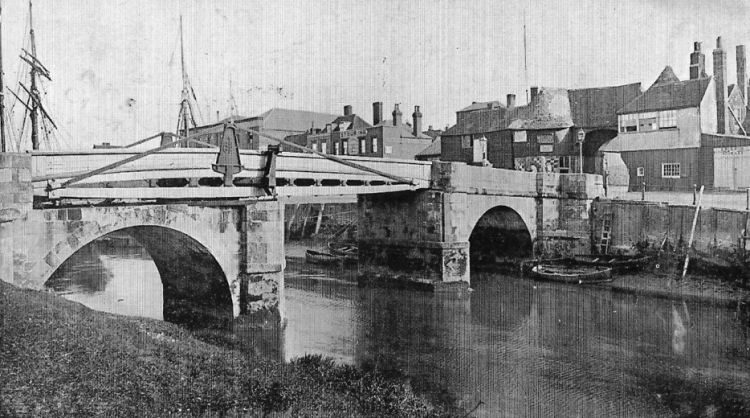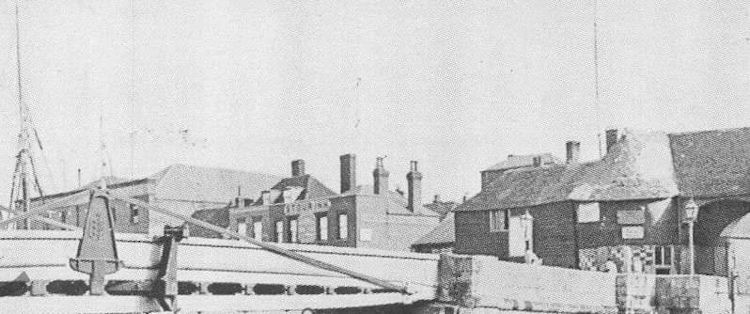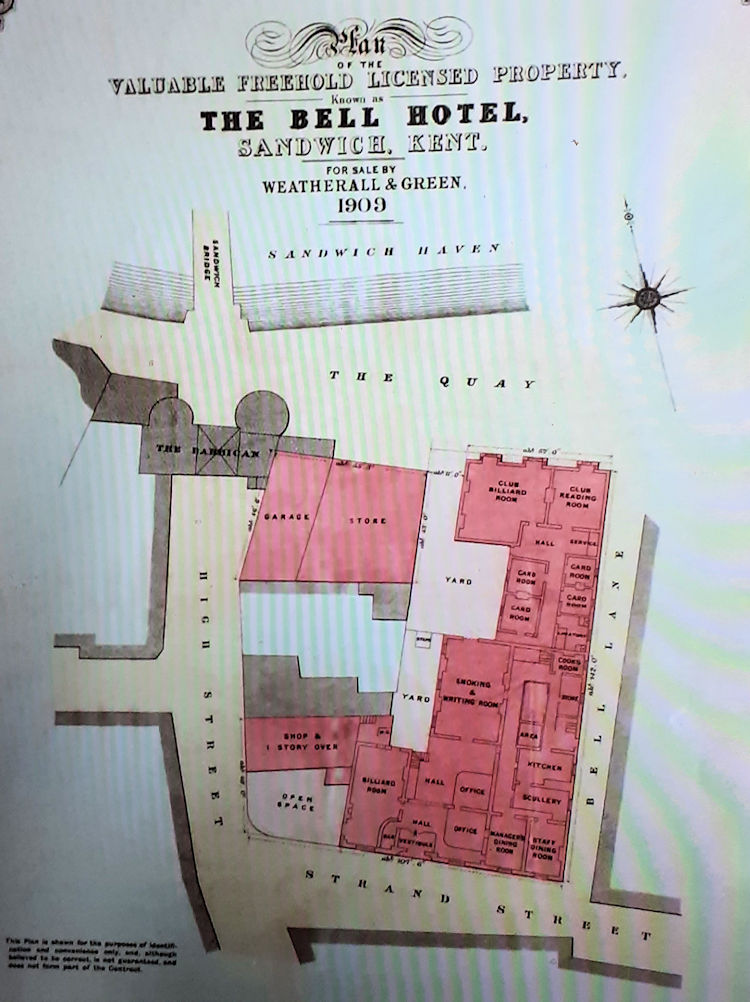|
From the Canterbury Journal and Farmers' Gazette, Saturday, 29 January, 1887.
CANTERBURY BANKRUPTCY COURT
Re John Dilnot Daniels.
The official receiver said the debtor had been a licensed victualler and
fly proprietor, at Sandwich. He commenced business about 20 years ago,
and had no capital. His accounts show that he owed £215 to unsecured
creditors. His assets consisted of furniture, fixtures, and other
property worth £41 5s., and book debts £3 0s. 6d. The preferential
claims amounted to about £8, the net assets being £36 15s. 6d. The
bankrupt occupied for sometime the "New Inn," and, after leaving that,
he went to the "Stour Inn." He left the "Stour Inn" with a considerable
quantity of valuable household furniture. The sale of his furniture by
Mr. W. D. Young (acting on behalf of the Court) realised about £8. He
had a business as a fly proprietor, and he used in that business several
horses and flys and a waggonette. When his property was taken under the
bankruptcy he had in his possession one fly, which sold for less than
£7, and a horse, which sold for a small sum. The case would require a
good deal of investigation, and the bankrupt would have to account for
many articles which he had in his possession shortly before his
bankruptcy.
Mr. George Collard appeared for the debtor, and Mr. Frederick Hall
(accountant, Deal and Sandwich) represented several creditors.
The debtor, who was subjected to a very severe examination by the
official receiver, said: I left the "New Inn" two years ago. I was at
the "Stour Inn" twelve months, and my valuation when I left it was £70
or £80. Mr. Flint wanted all that. I formally had three horses and 3
flies. The waggonette was not mine. I having son-in-law named Howell, a
waiter at the "Fleur de Lis Inn," Sandwich. I gave him £10 worth of
furniture for money I borrowed. Some furniture was taken away from my
house to Mrs. Boast's. About £10 worth of my furniture was taken from
her house to my brother-in-law, and a man named Beer, living at Stelling.
The official receiver: Your pretence is, I suppose, that you borrowed
money of Beer, and gave him the furniture in payment.
The Debtor:- I had the £10 off Beer, and sold him the furniture. It was
removed in a waggon at about 7 p.m. or 8 p.m., by gas light. I gave my
daughter (wife of Howell) a perambulator just before Christmas. I have
been short of money for a long time. I have been in debt ever since I
left the "Stour Inn." Many of my debts were incurred last year. I
borrowed £100 from Mr. Elgar, an independent gentleman. I told him I
wanted to buy a carriage, and I bought one for £80 from Mr. Bligh. The
waggonette I had either to buy or sell. The horse and harness I had to
use whilst I was suiting myself with another, as I had had bad luck with
my own two horses. No price was fixed upon for the horse and harness.
When the waggonette was taken away, no furniture was sent with it.
Another horse I sold for £20 to a man of whom I have previously borrowed
£10. That only left me the horse that was sold at the sale.
By Mr. Hall:- I was obliged to sell furniture to get money. I have kept
my books. I owed Mr. Hills (Dover) £130 and paid him £60 for a carriage
and repairs.
By the Registrar:- My daughter was a barmaid at the "Fleur de Lis Hotel"
before she married Howell. Howell paid £30 for furniture and a piano,
and he has got money in the bank still.
The Registrar:- He is a lucky waiter then.
In answer to the Official Receiver the debtor said:- When I received
some summonses I went to Mr. Payn (Canterbury), who assists people in
difficulties.
By the Registrar:- Mr. Payn told me the only thing I could do was to
file a petition. I saw him after Christmas.
The debtor was allowed to pass, the Official Receiver saying he would
prefer that course to an adjournment, as he wanted the bankrupt and make
the usual affidavit as to having disclosed all his property.
Before signing the document, the Registrar warned the bankrupt to
carefully read it over and think what he was doing.
Daniels said the affidavit was correct, and he was then sworn and signed
it.
[The statement of a Canterbury contemporary that this case was adjourned
is incorrect.]
|


